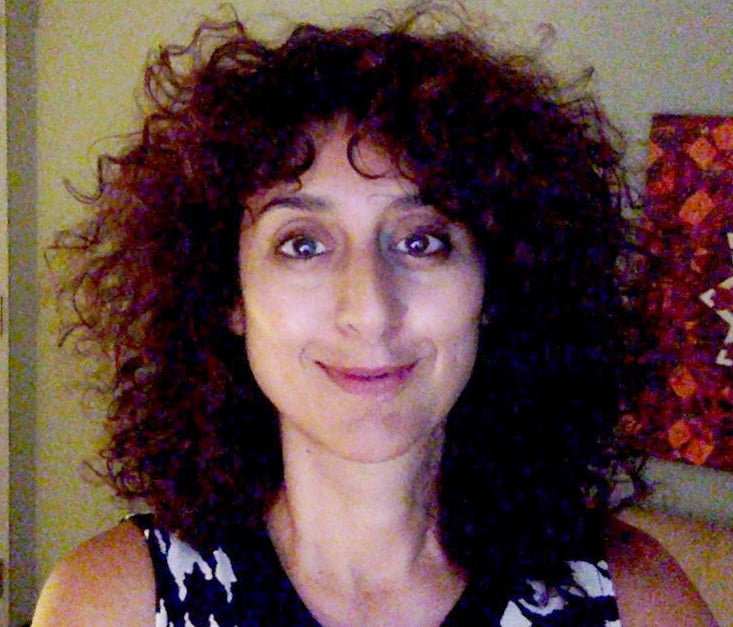When my daughter, Nat, was six years old, she began to clear her throat repetitively, jerk her head, and make screeching sounds. My father, a psychiatrist, rightly suggested that these behaviours could be tics - repetitive, involuntary vocal sounds and motor movements twitching muscles .
Many children go through a phase of having tics such as eye blinking or throat clearing, but if both vocal and motor tics persist for over a year the child meets the criteria for Tourette's Syndrome TS , a neurological disorder.
It was no coincidence that Nat's tics began at age six, which was when our family moved back to Scotland from the US. Research shows that allergies are significantly more prevalent in people with TS and as well as tics, Nat developed an allergy to raw carrots. Our doctor explained that people with carrot allergies are often allergic to birch pollen, and the exposure to increased levels of birch pollen in Scotland was a likely environmental trigger for Nat's TS.
Other co-morbid conditions that are frequently found in children with TS are ADHD, Obsessive Compulsive Disorder, conduct disorders, anger problems, and about one in five children with autism will also have TS. TS with comorbidities is sometimes referred to as TS-Plus.
What can I do if my child has TS?
Be prepared to advocate for your child, as long, as often, or as loudly as necessary! Explain TS to everyone you meet... whether your child is repeating phrases at the cinema instead of quietly watching the movie, making inappropriate comments at the playground, or swearing at teachers.
When you have a child with Tourette's Syndrome you should study up on the condition and become a detective. Everything in the environment is a potential culprit, including food, household cleaning supplies, shampoo, paint, and artificial fragrances. We discovered that when Nat entered her school the pot pourri on the reception desk caused her to have tics. It was the same with the fluorescent overhead lights in the supermarket and other shops.
Pay attention to what is going on in your child's life if tics suddenly worsen. Stress can increase their severity, as can illness or infection. Children with TS are prone to bullying and may develop anxiety or depression. Your child might be 'holding in' their tics at school, which takes a considerable amount of mental energy, and they will then need to have a period to release these suppressed tics. This 'rebound' can in some cases last for hours and consists of very intense or frequent bouts of tics.
A lesser-known symptom of TS is elevated body temperature - a child may feel hotter in cold weather than a neurotypical child. After several complaints from school that Nat was wearing shorts in winter she would change in the school toilets I asked her doctor for a letter to say that she was allowed to dress so that she felt comfortable regardless of the weather.
As Nat got older, she developed a vocal tic where she said 'I want to stab you!'. As you might imagine, this caused some consternation at school, and once we even had the police come to the house concerned that she might try to bring knives to school. Although her motor and vocal tics are very minor now that she is an adult, she still prone to obsessive and repetitive thinking. Nat carries a Tourette's Syndrome medical alert card that she can hand to authorities if necessary.
Treatments for TS should aim to help the child to navigate social situations and the school environment more effectively. These could include therapy and psychoeducation, taking supplements, vitamins and minerals, self-hypnosis, training in tic redirection, as well as stress-reducing activities like exercise, deep breathing, meditation, and massage therapy.
Medications can be helpful although with the presence of co-morbidities, responses may be idiosyncratic. Guanfacine, an α-2 agonist and first-line treatment for TS, worked very well for Nat for most of her adolescence and has a mild side-effect profile. Given that many children will eventually outgrow TS, the more aggressive treatments like deep brain stimulation or medications with serious side-effects should only be considered for severe or debilitating TS that persists into adulthood.
The impact of Tourette's Syndrome
The impact of TS while a child is growing up depends on the severity of the tics and any co-morbid conditions that add to the burden the child is carrying. For those with simple tics and no co-morbidities, other people might not even notice, but for others TS permeates and affects their whole life, including relationships and work.
It is not all bad though! As Oliver Sacks and others have noted, people with TS often have a very keen, sharp or wicked sense of humour. Other positive traits that are associated with people who have TS include having plenty of energy, having empathy, the ability to be fully engaged in and quick to complete activities or tasks that they enjoy, good perceptual ability, and some areas of enhanced cognitive processing.
In my family, because Nat as a child had no filter on what she said or thought, we quickly learned that there is no topic off limits. We have had some wonderful, deep and thoughtful family discussions sparked by a question or comment from Nat. This also led to friends of both Nat and her sister feeling comfortable talking to us about topics they felt they could not bring up with their own families.
For more information see the websites of: Tourette's Action UK, and Tourette Association of America. Films include: Lewis Capaldi's Netflix documentary How I'm Feeling Now 2023 , I Have Tourette's, But Tourette's Doesn't Have Me 2005 , Brad Cohen's Front of the Class book, 2005, and movie, 2008 . The fascinating book by the late neurologist Oliver Sacks, An Anthropologist on Mars 1995 , contains a chapter on TS.
Dr Claire de la Varre is a verified Welldoing therapist in Stirling and online

